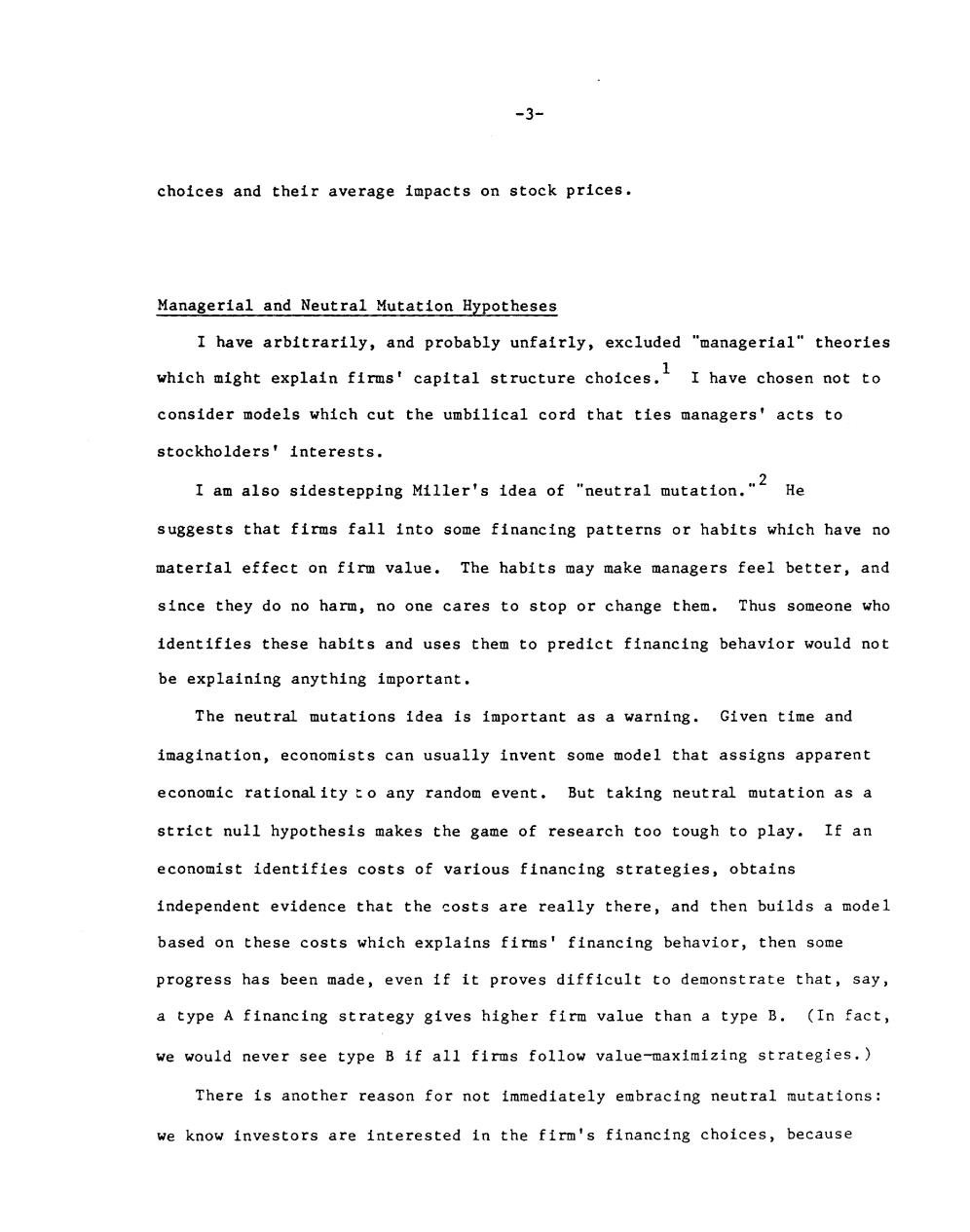正在加载图片...

-3- choices and their average impacts on stock prices. Managerial and Neutral Mutation Hypotheses I have arbitrarily,and probably unfairly,excluded "managerial"theories which might explain firms'capital structure choices.I I have chosen not to consider models which cut the umbilical cord that ties managers'acts to stockholders'interests. I am also sidestepping Miller's idea of "neutral mutation."2 He suggests that firms fall into some financing patterns or habits which have no material effect on firm value.The habits may make managers feel better,and since they do no harm,no one cares to stop or change them.Thus someone who identifies these habits and uses them to predict financing behavior would not be explaining anything important. The neutral mutations idea is important as a warning.Given time and imagination,economists can usually invent some model that assigns apparent economic rationality to any random event.But taking neutral mutation as a strict null hypothesis makes the game of research too tough to play.If an economist identifies costs of various financing strategies,obtains independent evidence that the costs are really there,and then builds a model based on these costs which explains firms'financing behavior,then some progress has been made,even if it proves difficult to demonstrate that,say, a type A financing strategy gives higher firm value than a type B.(In fact, we would never see type B if all firms follow value-maximizing strategies.) There is another reason for not immediately embracing neutral mutations: we know investors are interested in the firm's financing choices,because